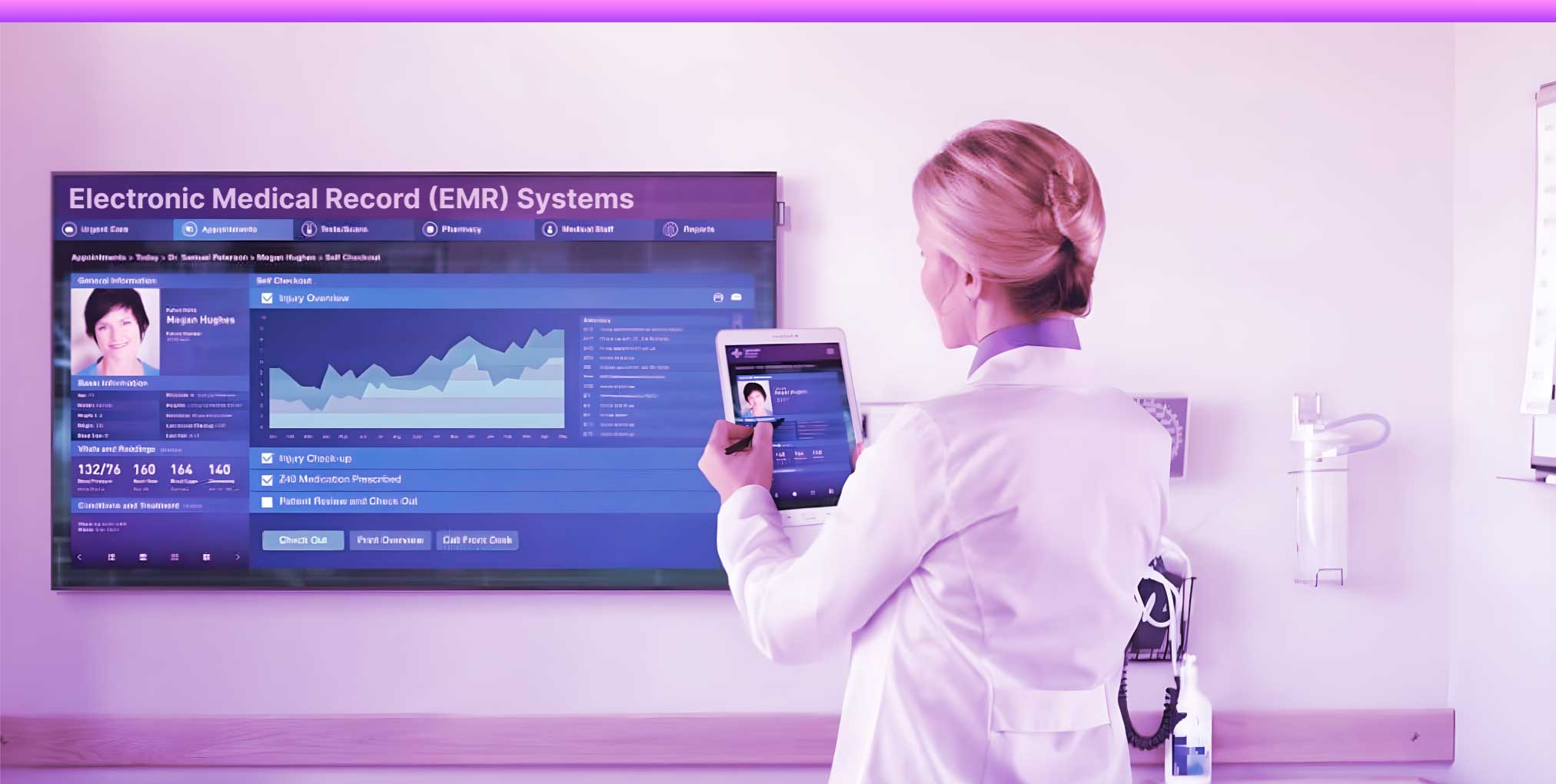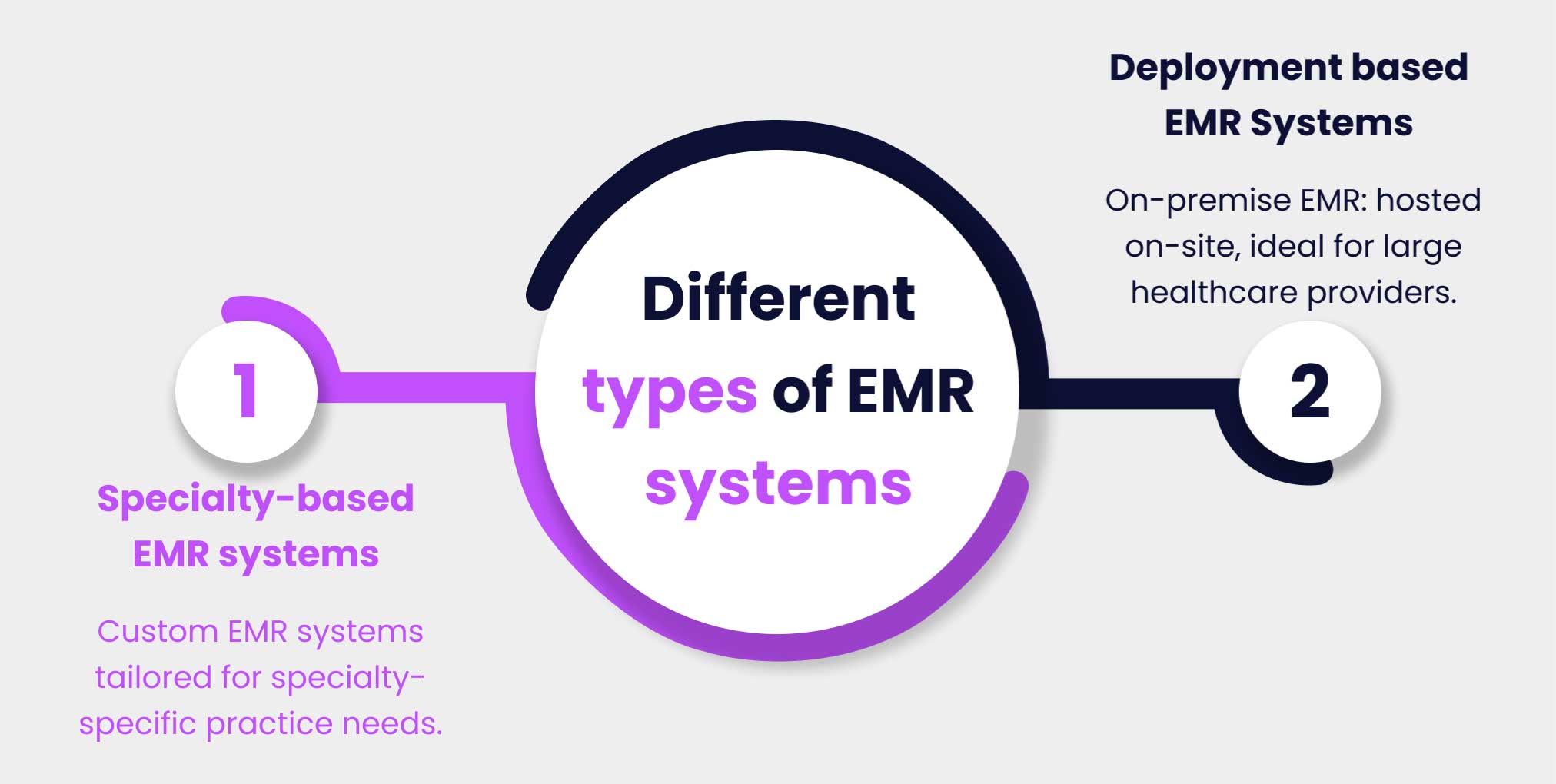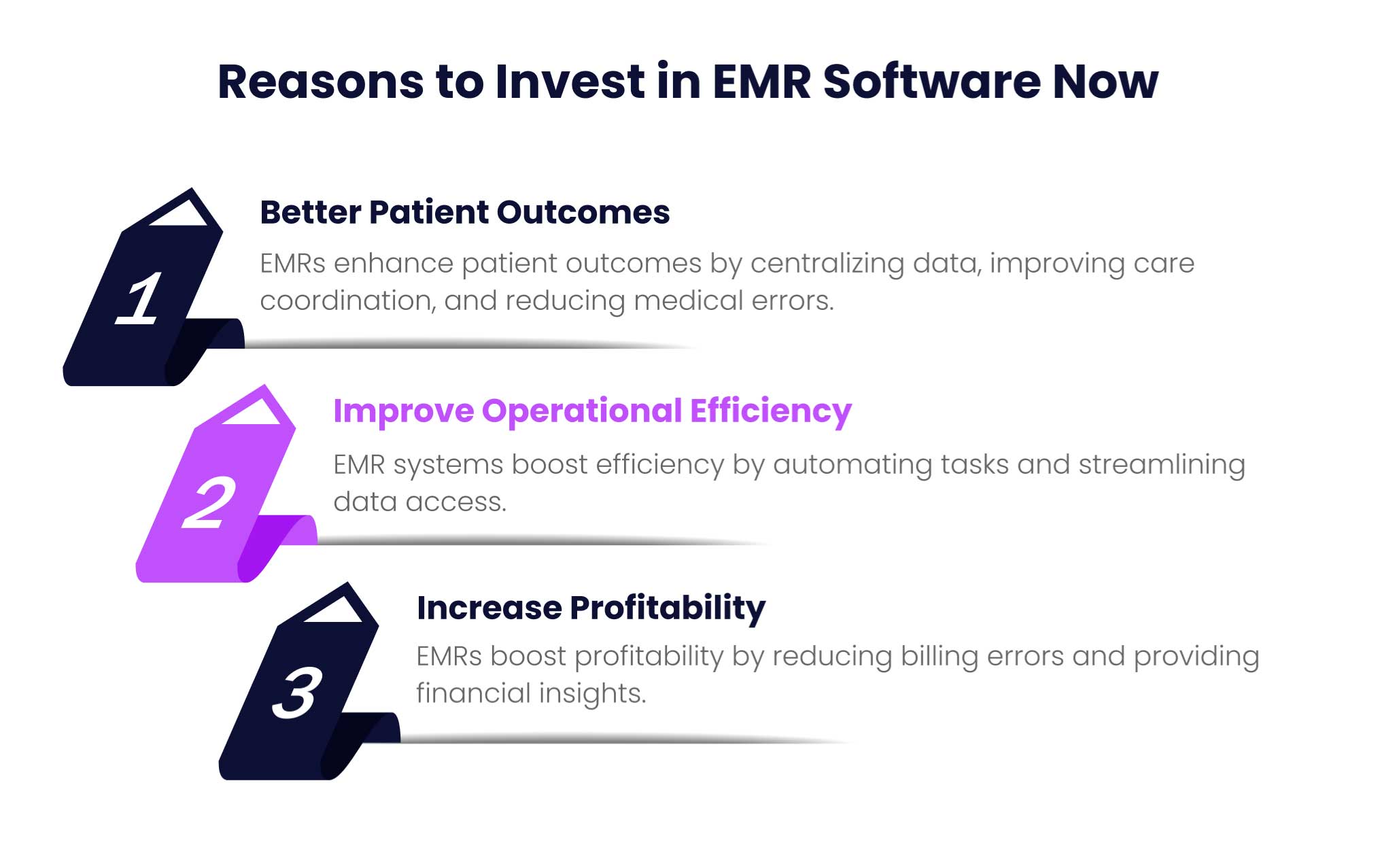

November 12, 2024
If you are surfing the internet to understand different types of EMR systems, it hints that you already have a basic understanding of EMR software solutions. If that’s the case, in this article, we will only skim the surface of “what is an EMR” and will jump directly into the core topic of understanding multiple EMR types and why it is so important to invest in the right one for your practice.
Electronic medical records (EMRs) are digital versions of patient paper charts that are introduced so that providers can quickly access and share accurate and up-to-date patient medical information with other providers.
These EMRs contain patient medical history, medications, treatment plans, allergies, laboratory results, and more. The software used to store and manage these EMRs is known as the EMR system.
There are numerous types of EMR systems depending on deployment method and specialty. In order to maximize your business efficiency and return on investment, it is crucial to understand the different EMR types. It helps you better understand what suits your healthcare organization the most and what returns to expect with EMR software implementation.
So, without wasting much time, let’s explore the main types of EMR software:

An on-premise EMR system, as the name indicates, is stored on the healthcare providers’ server within a healthcare environment. It is best suited for larger healthcare organizations as they can afford upfront costs and have the necessary resources to handle challenges.
In cloud-based EMR solutions, patient health information is stored and accessed from remote servers instead of local servers. It accesses the patient data using the internet. This type of EMR system is most suitable for startups and small to midsize healthcare practices.
Specialty-specific EMR systems are developed after understanding your specific practice and its requirements for maximum impact. Suppose you are running a cardiology practice; it’s necessary to have an EMR solution tailored to tackle the unique challenges of the cardiology specialty rather than a general solution. These custom EMR solutions come with pre-built templates and workflows.
If you want an EMR system that supports multiple specialties, then you must choose multi-specialty EMRs. Such versatile EMR systems have multiple templates and modules that are best suited for organizations that manage various specialties. These types of EMR software are all-in-one solutions that improve efficiency and care coordination.
You’re probably questioning yourself: Should you invest in EMR systems? What benefits will you get with EMR software implementation? Isn’t it so? Well, it’s totally fine. These questions come in every curious business mind. I will help you understand why you need an EMR system for your medical practice. Here are the top three benefits of EMR software implementation:

EMRs help healthcare providers achieve better patient outcomes. It is because of a number of reasons. Starting with data management and retrieval. EMRs centralize patient data in a single place and make it easier to access. It helps in timely and informed decision-making without wasting much time.
It also supports care coordination as providers can share patient health information among multiple caregivers within a single practice. It helps teams to stay on the same page and deliver outstanding patient care.
EMR implementation significantly reduces medical errors and drug interactions. The reason? E-prescription generation and built-in feature to detect drug interactions, allergies, and vital signs to make data-driven decisions. So, at this point, I am guessing that you have found your answer to the question, “Do EMRs improve quality of care?”
Another benefit of the implementation of EMR systems is that they increase operational efficiency by automating various hectic and time-consuming tasks. It automates data entry, appointment scheduling, billing, and many other tasks. This automation helps to improve productivity and keep your business running smoothly.
Moreover, as discussed above, all data is stored digitally to make access easier. It helps to reduce time spent on finding patient health records and contributes to quicker patient turnaround.
If you have read till now and found nothing special about different types of EMR systems, no worries, as you surely are going to love how they improve profitability.
EMRs help reduce common billing errors that help providers get paid accurately and quickly for serving patients. These systems do so by automatically gathering accurate patient data at the time of registration and submitting claims without delays.
Moreover, EMR software solutions provide detailed reports on finances that help business owners understand incoming and outgoing money. It helps with budgeting and identifying areas to generate more revenue and gain financial stability.
In today’s highly competitive and digitized healthcare landscape, it is impossible for any business to thrive without having a secure EMR solution. It is crucial to know that different types of EMR systems are available, each suitable for a specific purpose, and understanding every kind is necessary to make informed decisions. You can make the most of your EMR investment by aligning it with your specific needs and selecting the best EMR system.
Need help with improving your operational efficiency or profitability? Xeven Solutions is a leading EMR software development company that has partnered with hundreds of healthcare organizations to help them choose the most suitable type of EMR systems and make the right investment decisions.
We deliver secure and user-friendly EMR solutions to help businesses like yours provide value-based care. If you want to modernize your existing EMR systems or want a new one tailored to your specific needs, get in touch with our experts and learn how we can help you!